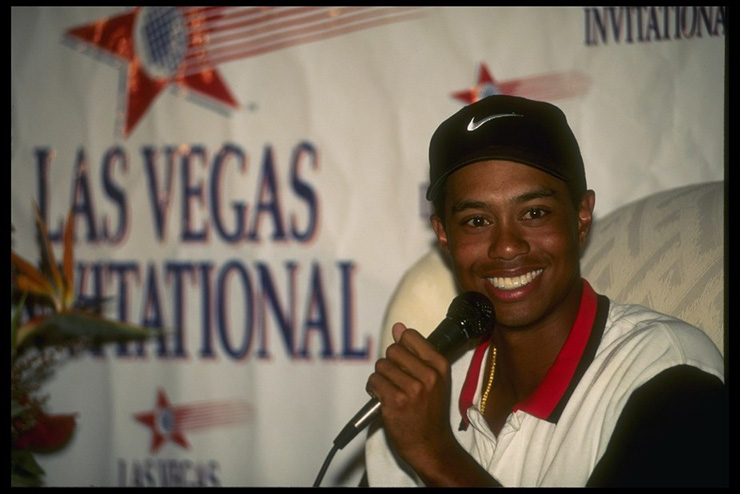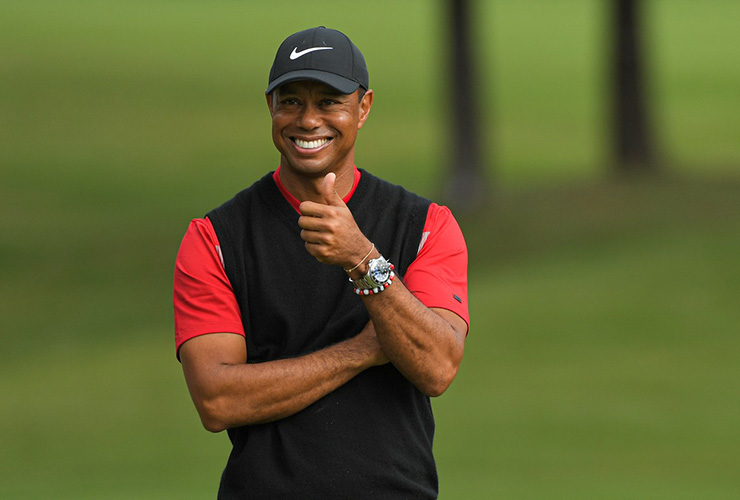By Dave Shedloski
It’s been increasingly popular to dismiss, if not denigrate, the accomplishments of Sam Snead since Tiger Woods resumed his pursuit of The Slammer’s seemingly insurmountable mark of 82 PGA Tour titles. Whether suspect or subjective, Snead’s record was established long before Woods began his journey to Sunday’s historic crossroads with his first career victory at the 1996 Las Vegas Invitational.
Eighty-two it has been. Eighty-two it remains. Snead just no longer holds the record alone.
For more than a decade, as he was compiling wins with an ease that belied the inherent difficulty of the exercise—and defied orthodox golf calculus—the notion of Woods catching Snead’s disputed mark was dismissed as a given. And then, as injuries and personal issues robbed him of opportunities, including two full years lost to back problems, Woods himself was inclined to dismiss his chances of even playing again, let alone re-engaging in the chase.
Now we know that Woods always had a rendezvous with destiny. All it took, as Woody Allen once said, was showing up. Well, that plus a miracle spinal surgery, a rebuilt swing, and the game’s finest strategic acumen this side of Jack Nicklaus, the man with the one record Woods has yet to eclipse.
But first things first. Woods transformed the inaugural Zozo Championship in Japan from another so-so fall event into a tournament of indelible significance when he beat native son Hideki Matsuyama by three strokes on Monday (or Sunday depending on where you reside on the international date line) for win No. 82.
RELATED: Tiger Woods’ 82nd win a celebration of excellence, but patience as well
“It’s crazy. It’s a lot,” Woods said after completing a three-under 69 at Narashino Country Club and posting 19-under 261, his 32nd win by three strokes or more, which alone would place him 15th on the tour’s all-time victory list, tied with Horton Smith.
It’s a lot, yet not enough, if we know anything about Woods, whose fierce competitiveness as much as his talent has carried him to this moment. When he registers his 83rd victory—and you have to believe he will if he remains in relative good health—this niggling over what a tour committee decided in 1987 to arrive at Snead’s victory count will come to a blessed conclusion, for it has made for specious arguments that are patently unfair to both men.
The cross-talk needlessly has tarnished the reputation of Snead, whom independent record keepers credit with 140 worldwide titles, which, you know, is a lot more than a lot, and who arguably was the finest naturally gifted athlete ever to swing a club. It also has been disrespectful to Woods, who never has expressly disputed the number and has remained true to its pursuit.
Now, one can argue legitimately that Woods years ago surpassed Snead in one significant metric: individual titles. You might have missed it. Snead is credited with five official wins in team events among his 82 victories. Woods tied Snead’s number of individual victories at the 2013 Arnold Palmer Invitational and moved into first all-time in this distinction two months later by capturing the Players for win No. 78. He was 37 years old and competing in just his 286th tour event as a professional, a staggering 27 per cent success rate.

J.D. Cuban
Win No. 82 comes in his 359th start. His winning percentage has dipped to 22.8, yet it’s still the highest in golf history. Ben Hogan is the only other player better than 20 per cent (21.3). Impressive on its own merit. But turn the stat on its head. Eighty-two wins in 359 events amount to a victory every 4.37 starts. It’s a staggering figure. Most good players are happy to win once a season, about every 20 starts.
“You look at the guys that have won 10 times and it’s pretty special, let alone to come out here and win 82 times,” said U.S. Open champion Gary Woodland, who was paired with Woods over the final 36 holes in Japan.
Woods didn’t win for five years until his Tour Championship triumph last September. He has three wins in his last 14 events. Amazing? Perhaps, given those five lean years. Then again, see above for his career average. It’s about right.
His only remaining goal, the one he dreamed of since he was a boy, is scaling Mount Nicklaus. Woods is three shy of the Golden Bear’s record of 18 professional major championships after his magical Masters win, one that we can hold in even greater awe knowing that he was playing on a knee already long overdue for yet another surgery.
Longtime friend and former Stanford University teammate Notah Begay III of Golf Channel surmised that Woods would list the Nicklaus and Snead marks as “1 and 1-A,” respectively, in order of their priority. So, when Woods said in the immediate aftermath of his latest triumph that “this is big,” he meant it.
In the final accounting, however, some achievements can’t be defined at all by numbers. Woods said it himself. “It’s about consistency and doing it for a long period of time.”
Which means that Tiger Woods’ career so far is about perseverance –- the will not only to win but to also keep wanting to win, to keep working at it, keep rehabbing injuries, keep rebuilding his game, keep thinking, grinding, finding a way. There have been countless hurdles to clear along the way, some of his own making, it must be noted.
But he keeps clearing them.
To never give up means always, always winning.









